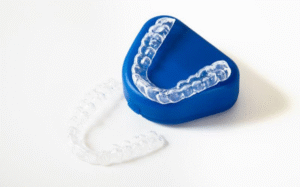How Collagen Supports Athletes: From Recovery to Resilience

When you think of sports supplements, you probably picture protein powders, electrolytes, or creatine. But one supplement is gaining major traction among athletes and fitness enthusiasts alike: collagen.
Often associated with skincare and anti-aging, collagen actually plays a critical role in muscle, tendon, and joint health—making it a powerful tool not just for looking good, but for performing and recovering better. Whether you’re a runner, weightlifter, yogi, or weekend warrior, drinkable collagen can help support your body’s structure, enhance mobility, and reduce injury risk.
In this article, we’ll explore the science of collagen for athletic performance, how it aids in recovery and injury prevention, and why a premium supplement like collagene da bere can elevate your fitness journey from the inside out.
What Is Collagen and Why Does It Matter for Athletes?
Collagen is the most abundant protein in the body. It forms the connective tissue framework that holds together muscles, bones, tendons, ligaments, and cartilage. It’s essential for:
- Joint mobility and flexibility
- Tendon and ligament strength
- Cartilage integrity
- Muscle-tendon connection
- Soft tissue repair and regeneration
As you train harder, collagen helps absorb the impact and support the stress placed on your body. And just like muscle fibers, collagen fibers break down and need to be rebuilt—especially with age or intense training volume.
Why Athletes Need Extra Collagen
By your mid-20s, collagen production begins to decline naturally. Combine that with the physical stress of training—jumping, lifting, running, stretching—and your body starts to experience microtraumas that can build up over time.
Without enough collagen, you may experience:
- Joint pain or stiffness
- Slower post-workout recovery
- Increased injury risk (especially tendonitis or strains)
- Reduced mobility or flexibility
Supplementing with collagen can help replenish what your body uses and loses—enhancing both recovery and long-term performance.
Proven Benefits of Collagen for Athletic Recovery
✅ Strengthens Tendons and Ligaments
A 2017 study published in the American Journal of Clinical Nutrition found that taking collagen peptides one hour before exercise increased collagen synthesis in tendons. This means collagen can help fortify your connective tissues when they’re under load.
✅ Reduces Joint Pain
In a 2008 study, athletes who took 10g of collagen daily for 24 weeks reported significantly less joint pain while walking, running, and lifting. Collagen supports cartilage repair and helps reduce inflammation around the joints.
✅ Speeds Up Recovery
Collagen provides key amino acids—like glycine, proline, and hydroxyproline—that support the healing of muscle and connective tissues. This can shorten recovery time and reduce post-exercise soreness.
✅ Improves Flexibility and Mobility
By restoring the elasticity of tendons and ligaments, collagen helps maintain fluid, pain-free movement—critical for performance and injury prevention.
When and How to Take Collagen for Athletic Benefits
For athletes, timing matters. Here’s how to maximize the impact of collagen supplementation:
🕒 Pre-Workout (30–60 minutes before)
Taking collagen before training ensures that the amino acids are circulating when your tissues are most active. This supports real-time repair and rebuilding.
🛌 Post-Workout or Evening
Collagen taken after training or before bed helps promote overnight recovery and muscle regeneration—especially when paired with adequate sleep and hydration.
Why Liquid Collagen Works Best for Athletes
Powders and capsules are popular, but liquid collagen offers superior absorption and convenience—especially for busy, active lifestyles. It’s fast, effective, and doesn’t require mixing or measuring.
collagene da bere is formulated specifically for bioavailability and performance. It includes:
- Hydrolyzed marine collagen peptides (Type I) – Best for joint and tissue repair
- Vitamin C – Essential for collagen synthesis
- Zinc – Supports healing and reduces inflammation
- Hyaluronic acid – Enhances joint lubrication and skin hydration
It’s a single, ready-to-drink solution designed to fuel your recovery and support your goals.
Collagen vs. Traditional Protein Powders
You might be wondering—why take collagen when you already use whey or plant-based protein?
Here’s the difference:
| Collagen | Traditional Protein |
| Targets joints, tendons, skin, and bones | Targets muscle repair and growth |
| High in glycine, proline, hydroxyproline | High in BCAAs like leucine |
| Complements, not replaces, muscle protein | Essential for muscle protein synthesis |
| Better for injury prevention and recovery | Better for building muscle mass |
The two work best together. Think of collagen as the “structural support” and your protein powder as the “muscle builder.”
Additional Benefits for Active Lifestyles
Beyond performance, collagen offers secondary benefits that support athletic living:
- Better skin (reduced chafing, sun damage recovery)
- Stronger nails (great for climbers, lifters)
- Healthier gut lining (important for nutrient absorption and immune function)
- Improved sleep (thanks to glycine, which supports relaxation)
This makes collagen a multifunctional supplement for athletes who want to look good, feel good, and perform better—without complicating their routine.
Final Thoughts
Whether you’re chasing a personal best, recovering from an injury, or simply staying active and mobile, collagen can give you an edge. It’s not about shortcuts or quick fixes—it’s about giving your body the materials it needs to stay strong, flexible, and resilient.
With a high-quality option like collagene da bere, adding collagen to your training plan is simple, science-backed, and incredibly effective.
Because the best athletes don’t just train hard—they recover smart.






